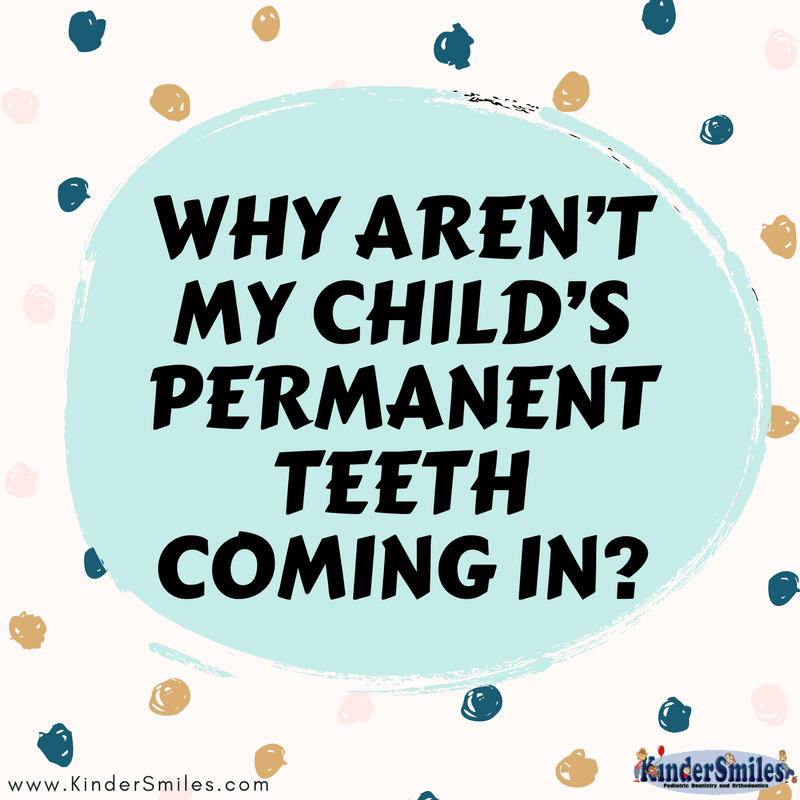You may be wondering why your child’s permanent teeth aren’t coming In. When your child finally loses his or her first tooth, it is a joyful moment for both you and your young one. You get to play the tooth fairy, and your child gets to earn a dollar for losing their tooth. In this post, we’ll show you all about your child’s permanent teeth. Let’s get going.
So…Permanent Teeth…
- However, when three, four, and six months go by and your child’s primary tooth is not replaced, you begin to worry. It is natural to feel concerned. But, before you consider taking those little mouths to a dental expert, you should have a clue as to why your children’s teeth may be taking too long to develop. Permanent teeth replacement is no big deal but permanent teeth age is important.
1) Lack Of Sufficient Space
- This is perhaps the most common reason why your children’s teeth have not erupted yet. When the milk tooth that was taken out is smaller than the one that is emerging, there will be a problem. It happens regularly because the permanent tooth at the front is usually bigger than the primary one and, therefore, lacks the space to develop properly and on time. Typically, there should be spaces between the primary teeth.
- It creates enough space for the permanent teeth that follow. This does not occur, and the result is lateness. In such an instance, you may have to remove the neighboring teeth or have your pediatric dentistry expert create braces for your child. Such steps create space in the little mouths for the permanent tooth.
2) The Permanent Going In The Wrong Direction
- Another common issue that causes late permanent teeth development is if they are facing the wrong way. When there is space, but the teeth do not follow the path of the primary tooth and erupt in the proper spot, there will be an issue. This commonly happens with upper canines and bicuspids because they mostly veer away from the intended course, which leads to issues in development.
- In such cases, there may be the need to surgically remove the primary teeth around that area to allow them to position themselves appropriately. You will, in most cases, have to use braces to get the teeth in the right place.
3) Gender
- Like with the general development of the body, there are huge variations in the speed of tooth growth between girls and boys. Girls tend to experience puberty and sexual changes earlier than boys. In the same way, girls tend to develop their permanent teeth slightly earlier than boys do. Studies show that girls begin losing their teeth up to 6 months earlier than boys. As a parent, it is normal to want to compare your children since that is human.
- If your firstborn is a girl, for instance, you will notice the time they lose their teeth and how easy and fast the permanent teeth come in. When it takes slightly longer for your baby boy, you will begin to worry and wonder what is wrong. Well, there is nothing that can be done about this difference. Be patient for a little while and see if the teeth come in. No matter what gender, permanent teeth eruption is inevitable.
4) Genetics
- Did your teeth come in late? Do you know that there is an 80% chance that the characteristics of your teeth development will be seen in your children? Well, now you know. If your teeth took time to grow or you ended up needing braces for there to be enough space for the new set of teeth to fit in, the same will happen with your children. It is, therefore, the time to talk to your parents and your spouse. Find out whether the delay is a result of genetics or something that needs a doctor’s attention.
5) Nutrition
- The nutritional status of your child can affect the development of their permanent teeth. To develop correctly, teeth require a lot of calcium, in addition to other minerals so that they are strong enough to push through the gum. If your child is a picky eater, you have to ensure that they learn the importance of eating a balanced diet early in life. Parents whose children do not stick to a healthy diet, rather preferring a sugar-rich diet tend to develop their teeth later than their peers in the same age group or class.
6) Weight And Height
- Studies on childhood obesity have revealed that overweight children tend to develop their permanent teeth faster than kids who are of normal weight. It is also true that taller children get their teeth earlier than their shorter counterparts. Therefore, if your child is short and relatively thin, their teeth will take time to develop. This is nothing you need to worry about because they will come in eventually and will truly be worth the wait.
7) Impacted Teeth
- These are teeth in your children’s mouths that are blocked from erupting due to premature loss of the primary teeth or narrow jaws. When the teeth lack the space to erupt, they will usually stay in. Primary teeth usually develop fully but do not erupt because they are blocked. In such cases, a radiograph is needed to check whether the position of the teeth is correct. Handling this early enough, there is no damage to the surrounding tissues and other teeth.
8) Supernumerary Teeth
- These are extra teeth that can form anywhere on the arch of your mouth. Because they erupt on the space meant for permanent teeth, they may delay or displace them. This can cause dental problems and irregularities.
Conclusion
The development of your children’s permanent teeth is something that should occur normally. As a parent, you need to constantly remind yourself that your child is unique. And no comparison to other kids. However, if it takes more than six months for new teeth to show signs of erupting.
You should take your child to Dr. Engel a pediatric dentistry specialist who will find out the cause of the problem and get a solution for it. Within a few weeks, your child should have new teeth coming in. Braces are important in aligning teeth as they grow and perfect that smile you adore so much! Contact KinderSmiles for a comprehensive evaluation of the health of your child’s teeth.
- Which tip will you try first???
- Either way, let us know by leaving a comment below right now and continue the conversation.
KinderSmiles Pediatric Dentistry and Orthodontics
400 Kinderkamack Rd.
Oradell, NJ 07649
Phone: 551-210-4012
8 Facts About Your Child’s Permanent Teeth | FAST FACT LIST





